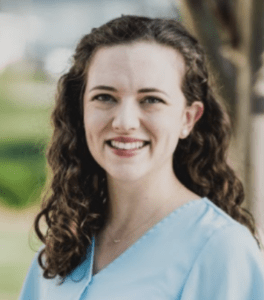Diogo Carvalho’s initial foray into evangelism was motivated by an emphasis on saving souls from hell and counting converts.
“It was hit-and-run evangelism. I would approach someone in the streets, speak with them five minutes and let them go,” the Brazilian pastor, missionary and seminary professor said during a “Global Conversation on Evangelism” workshop at the Cooperative Baptist Fellowship’s General Assembly Aug. 27.
The session, which was moderated by CBF Global Missions Coordinator Steven Porter, began with a panel discussion on how to practice authentic, relationship-focused outreach before moving into a wider conversation exploring how traditional evangelism methods and colonialism are intertwined.

Diogo Carvalho
During the session with fellow panelists, Carvalho said he realized Scripture was calling him to a deeper, more holistic expression centered around relationships instead of counting souls won on city streets.
“I realized preaching was not the only way” but that it was also about “making disciples,” said Carvalho, who serves with the Brazilian Baptist Home Mission Board and with the Baptist World Alliance commission on evangelism.
“I had to grow up in my disciple-making approach. I had to learn that the heart of Great Commission is making disciples, not only preaching and getting converts.”
The good news is that evangelism has evolved from a 20th-century “soul winning” model to a modern-day emphasis on sharing the gospel through words and example with people in existing social networks who have expressed an interest in the faith, Carvalho said.
When “someone sees your life and hears your words on how it is to be a Jesus follower, you can make another disciple.”
The focus on relationships at the center of effective evangelism helps overcome the reluctance many Christians have to sharing their faith, said panelist Pastora Acosta, a pastor in Honduras with a focus on serving underprivileged children.

Pastora Acosta
Building those relationships and living faith within them removes the fear of rejection many believers had from feeling “not very fluent talking about Jesus” or the Bible, she said. Instead, “we have a relationship with God, and we reflect that with others.”
In her context working with impoverished communities, evangelism is expressed through acts of compassion that can be as simple as giving cookies to children. “We try to reflect Jesus even in the smaller things. When we focus on what we can do and not on what we can’t, the impact is better.”
Working within a network of relationships also enables Christians to share their love for Christ by simply being who they are, said Kwame Adzam, a UK-based Ghanaian who serves as global leader for evangelism and discipleship at BMS World Mission and as vice chair of the BWA Commission on Evangelism.

Kwame Adzam
“The heart of discipleship is relationship, and each one of us has a network of relationships. You don’t have to use a technique or a formula,” Adzam said. “I can be myself and bring in all that I am. That is when disciple making really starts. It’s not an event, it’s a process.”
And evangelism is not about quoting Scripture and making convincing arguments, he added. “You just be you because the truth is people don’t want to know how much you know, they want to know how much you care.”
CBF field personnel and others who participated in the ensuing question-and-answer session focused on the importance of taking a post-colonial approach to evangelism that emphasizes being a Christ-like example instead of trying to win converts to Christianity.
Evangelism is not about presenting Christianity “as the right answer” to people of other faiths, but about sharing from the heart without an agenda, said Karen Morrow, CBF field personnel who serves internationals and refugees in Texas.

Rick Sample
Rick Sample, who serves internationals, immigrants and refugees in the San Francisco area, said he doesn’t try to convert people of other faiths to Christianity because he wouldn’t convert, either. “I will never do that. I would never convert to any religion.”
So, it goes back to being of service to those in need and having faith God will take care of the rest, he said. “It really is the Holy Spirit that touches the hearts of people. It is the Holy Spirit that converts people, and we have to rely on him to do that.”
Jenni Chilton, minister to children and families at First Baptist Church in Dalton, Ga., added that it is not a Christian’s duty to win coverts. “We have believed it is our responsibility to make someone believe in Jesus Christ.”

Jenni Chilton
Referencing seminary coursework and Bryan Stone, author of Evangelism after Pluralism and Evangelism after Christendom and other books on evangelism, Chilton said she has come to see that people can give and receive care from one another without having to work toward religious conversion.
“Whether or not you choose to believe is not my responsibility,” she said.
Workshop participants also discussed the Western assumptions inherent in traditional conversion techniques such as Evangelism Explosion, the Roman Road to Salvation, the Four Spiritual Laws and other systems of explaining the plan of salvation to potential converts.
Many of these evangelism approaches are designed to bring people into conversations aimed at changing the mind, but not the heart, Porter said. The emphasis is on “how quickly and efficiently we can produce converts.”
Those approaches are a complete waste of time in some contexts, said Brittany, a CBF field personnel based in Asia.
She told of hosting visiting church groups who arrive with evangelism tracts to distribute on local streets, not knowing it is illegal and that some Asians are accustomed to throwing away the plethora of pamphlets they routinely receive from businesses: “They’re just going to think you’re trying to sell them something from a store nearby.”
While Porter said he has serious theological concerns about such evangelism techniques, he also has seen them be useful in some cases. “God can use imperfect means” to spark conversations that launch people on journeys of faith, he said.
Related articles:
Do not lose heart while tending the soil of God’s work, speakers urge CBF assembly
Pandemic has accelerated needed changes in churches, panelists report
Pastors ponder pandemic preaching problems — and how they’ve survived
Scholar explores the ways migration changes people’s attitudes, beliefs and religion
What should you do if a sex offender wants to attend your church?
Churches urged to get ready to welcome Afghan refugees
A year later, CBF’s finances have stabilized, but General Assembly still virtual due to COVID


